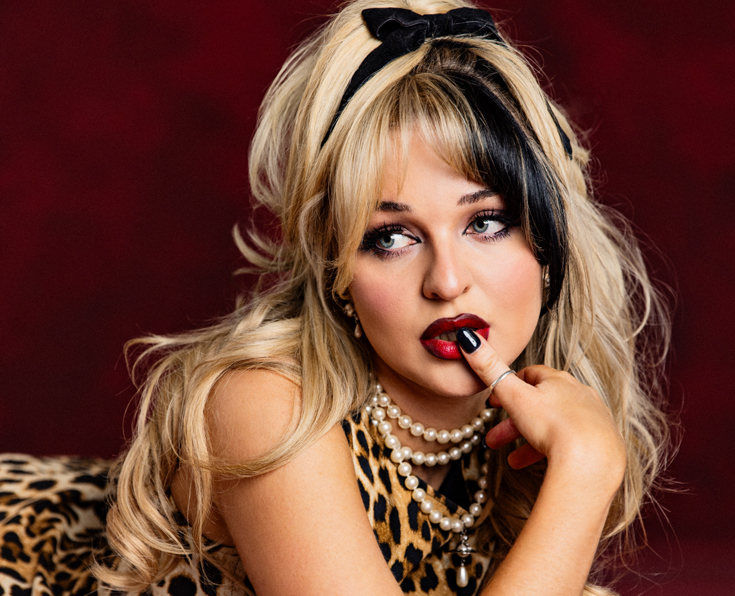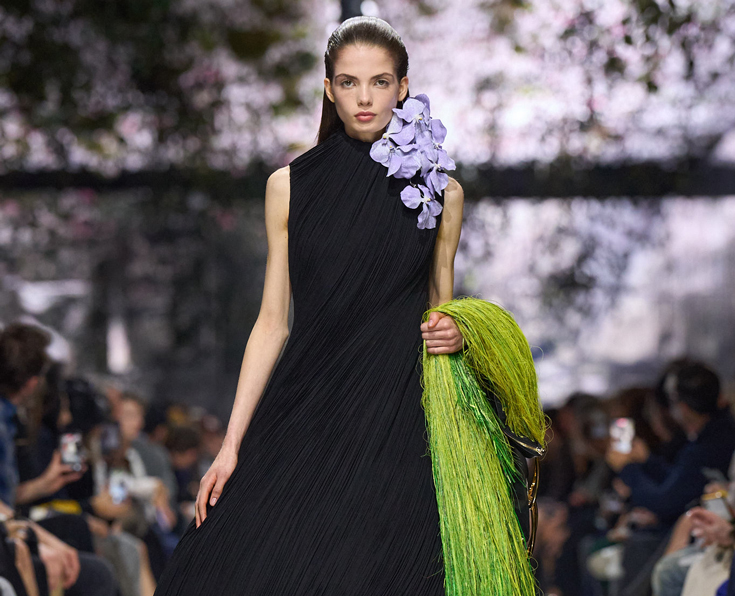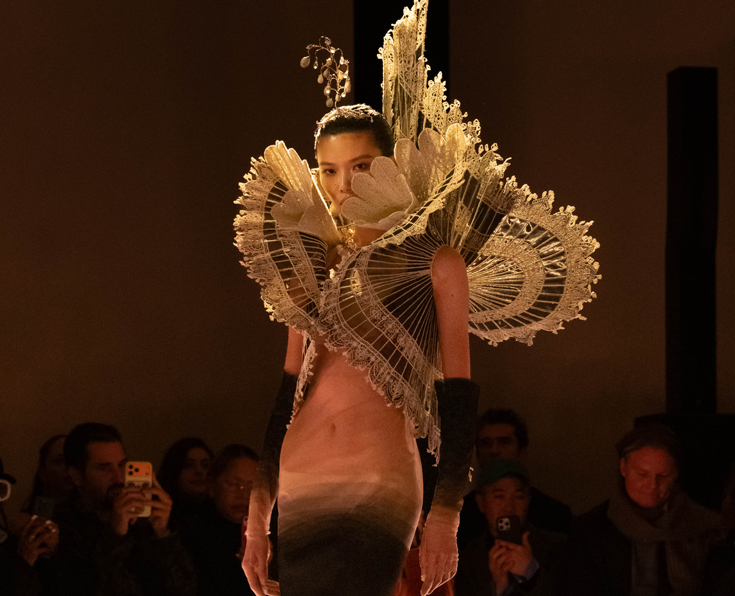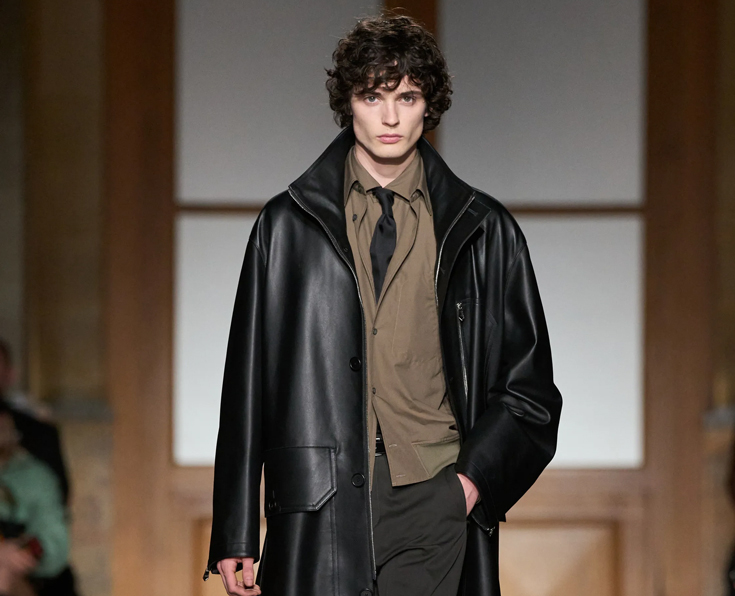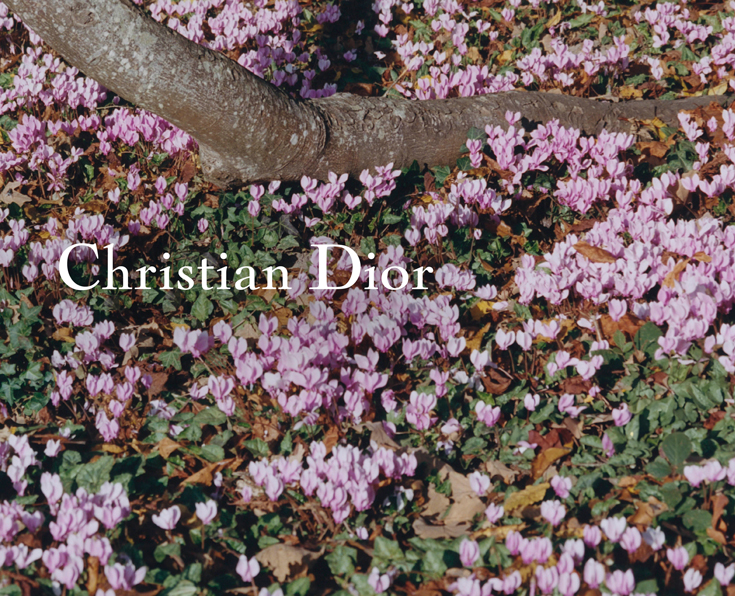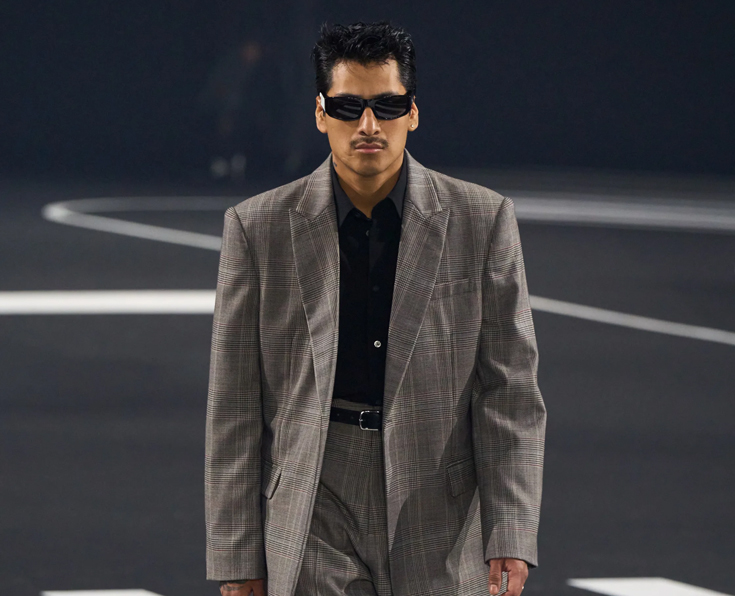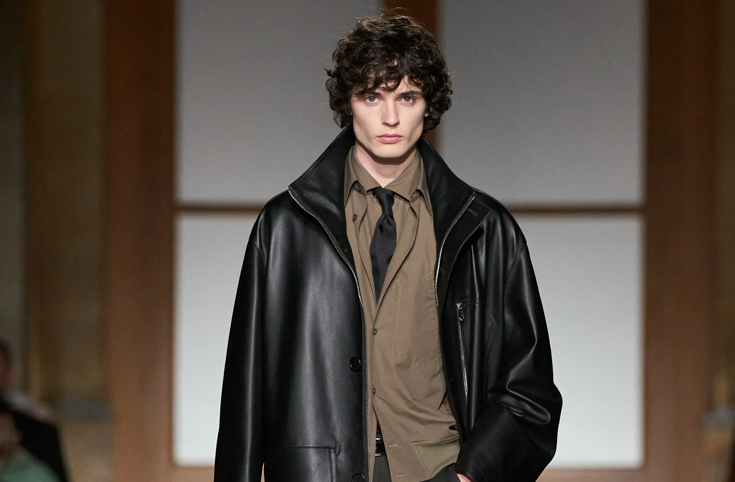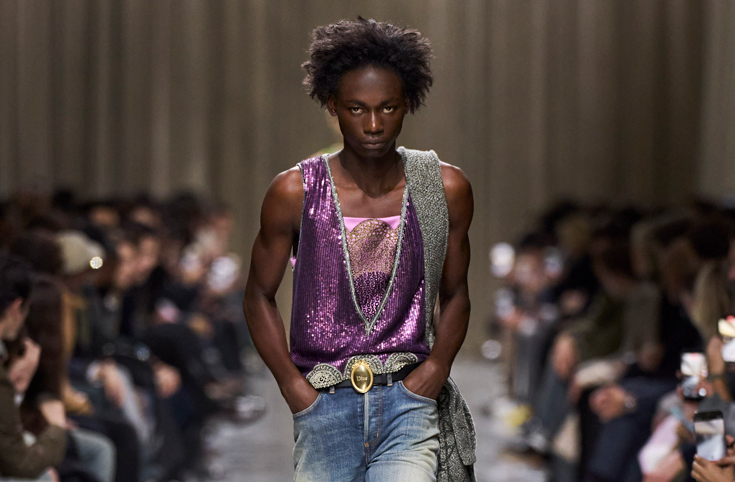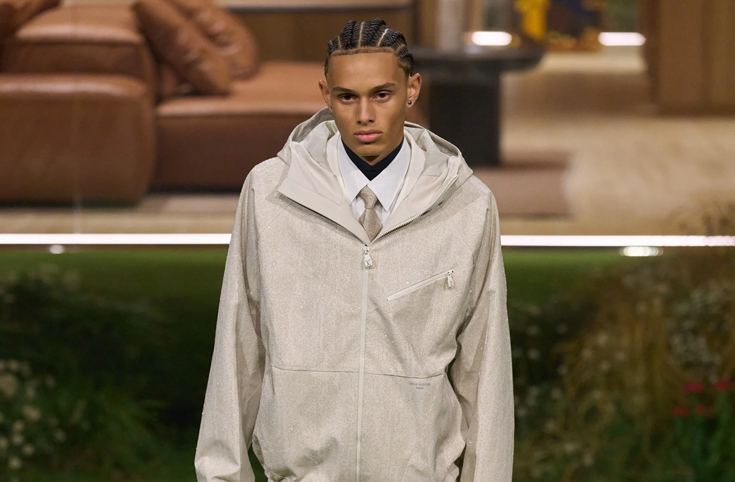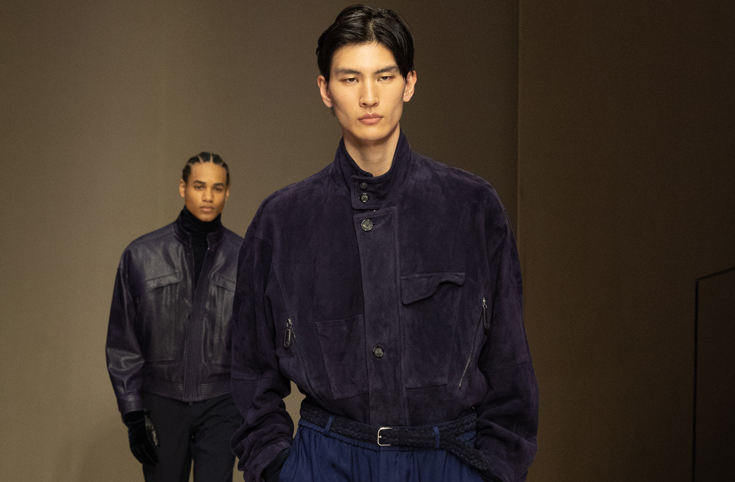The Art Of Being Edward Enninful
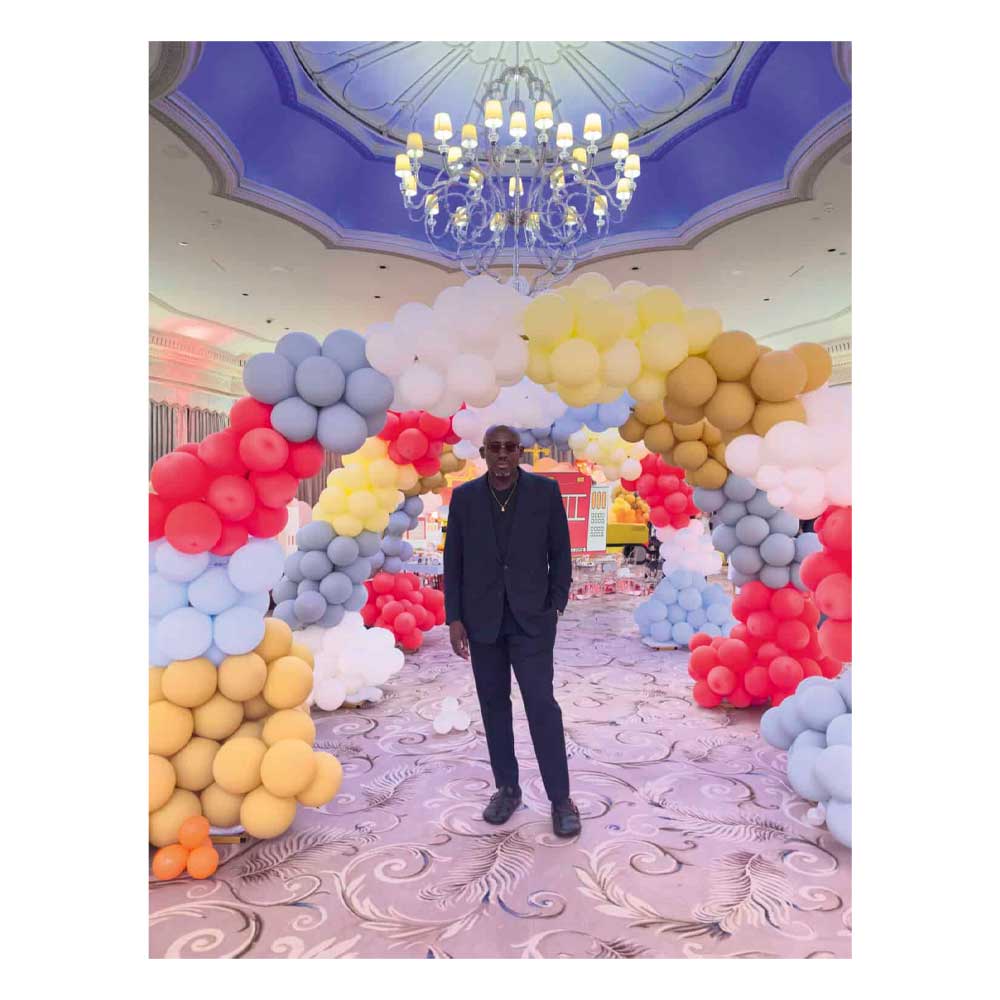
Taken from Issue 26 of 10 Magazine Australia, written by Anders Christian Madsen.
Edward Enninful’s first portrait was taken by Nick Knight. Enninful was 16 and the shoot took place in Richmond Park. “I was lying under a tree being eaten by ants, but I was so nervous I didn’t complain,” says Enninful. It’s a July morning and we are draped over a sofa by the terrace doors of his Georgian townhouse in Kensington, with phones and dogs in hand, and he’s flicking through a portfolio of portraits going into this issue of 10 by photographers including Juergen Teller, Campbell Addy, Adama Jalloh and Steven Meisel. “I’m comfortable being photographed but I’m not necessarily happy with how I look all the time. I do have a relationship with the camera, I know that,” he says with a shrug.
The shots, curated by Sophia Neophitou, don’t just mark the launch of Enninful’s new media and entertainment company EE72, but a friendship with Sophia that precedes and transcends the 25th anniversary of 10. “I remember when she started it and look at what she’s built! The turtle wins the race,” he says, smiling. “All along, she’s been my confidante: someone like-minded who came from an independent background; someone who loves laughing and living.”
Enninful, 53, has been up since 5am, as he is each day (naturally, sans alarms). He’s a creature of habit. After cuddles with his beloved Boston terriers Ru (who he sadly lost only a couple of weeks after our interview) and Riri, he looks at his phone. On any given day, he’ll wake up to a pile of WhatsApp messages from friends around the world, and usually a few missed calls from Naomi Campbell, who’s always in a different time zone. He exchanges the most texts with his sister Akua – who serves as the CEO of EE72 – and the creative director Ronnie Cooke Newhouse, a close friend. He saves most responses for later. Upon getting out of bed, Enninful takes hot water with lemon followed by a series of shots: beetroot, ginger and turmeric. Then, he starts to get ready for the gym. It takes him an hour. He’s a slow dresser. His gym kit is a medley of Alo, Nike and Kloss, the clothing line created by his filmmaker husband Alec Maxwell, whose business has expanded into a multifaceted community. Polymathics run in the family.
Enninful’s ascent to stardom has been well documented, not only in the media but in A Visible Man, his 2022 autobiography. Born in Ghana in 1972, his family relocated to Ladbroke Grove, West London, in 1985, where he and his five siblings were raised. At 16, he began modelling for magazines such as i-D and was styling for them only a year later; he was made fashion director at just 18. In 1998, he became a contributing editor at Vogue Italia. Ten years later, he would create its legendary Black Issue, which featured only Black models. After working for US Vogue for five years, he became style director of W in 2011. There, his talent for cultural commentary soared, paving the way for his appointment as editor-in-chief of British Vogue in 2017. During his six-year tenure, ending with the March 2023 issue, he transformed the magazine into a beacon of cultural discourse, diversity and progress that evolved and transcended fashion. This January, he launched EE72: a new big-picture media and entertainment company imbued with his values, dreamed up for the future.
Was this the plan all along? “It was the plan all along,” he nods, drawing out his As. Way before Vogue? “Way before Vogue.” Way before W? “Way before W. I always wanted to do something for the community and myself. It’s important for me that young Black kids know that it’s possible to create something like this. My whole career, I went from one thing to another, from i-D to Italian Vogue and so on. I always wanted to do more, and in the ’90s that was a problem. Fashion wants you to stay in your lane. Every stylist did their thing – one thing – and I was too varied. But ultimately, it became a benefit for me. I could adapt, I never wanted to be boxed in. Fashion wants you to do things this way or that way, and my thing was always: why? And why not?” EE72 is a manifestation of Enninful’s multidisciplinary spirit: it’s a studio that services clients through infinite formats and collaborations, a creative community and a platform for digital and printed content. EE72 powers the quarterly magazine 72, which launches this month.
I first met Enninful in April 2017 as he was putting his Vogue team together and he asked me to be his fashion critic. Ten months after he stepped down from his position at Vogue, he asked me to join EE72, his new magnum opus, as well as 72 in the same role. We live two streets away from one another, but I never see him in the local gyms. Every morning, he religiously goes to one in central London where he takes climbing classes. Group workouts motivate him. He doesn’t enjoy solo work. After training, he goes home to get ready for the day. He foregoes breakfast and sometimes lunch, drinks gallons of water and avoids sugar and dairy to the best of his abilities. He loves a vitamin B12 infusion. Enninful’s skincare routine starts with soap and water followed by Embryolisse’s moisturiser for sensitive skin. He uses Margaret Dabbs foot cream and Lucas’ Papaw lip ointment (he has an aversion to ashy feet and dry lips). His signature fragrance is Oud Satin Mood by Maison Francis Kurkdjian. Like the fresh white flowers that always perfume his spaces – orchids, peonies, roses – the scent is assertive but never overpowering.
I would sit across from him at Vogue House, where his desk was always backdropped by a wall of orchids. He likes them for their longevity. Enninful’s tenure at Vogue created such a strong imprint on the fashion world that comparisons between EE72 and Vogue’s parent company Condé Nast are unavoidable. “But I’m just doing me. I’m building a world that’s true to me,” he says. “My Vogue was about culture. Within that, you had fashion, film, architecture and so on. EE72 and 72 magazine are about culture. They’re not necessarily about fashion,” he notes. “I’ve also had a long enough career for people to look back at and see that whether it was i-D, W or Vogue, it was always my point of view. And, anyway…” He pauses. “The misconception people might make is that I’m launching a magazine. I am, but it’s part of a much bigger company. It’s part of an ecosystem and a business model. It’s our shopfront. With EE72, I’m looking far beyond fashion. I’m speaking to so many other industries.”
Working on EE72 over the past few months, it strikes me how consumer-friendly both the company and magazine are looking. At a time when industry and niche titles fill the market, Enninful’s instinct is a broad-audience approach. “I didn’t want to create another business-to-business magazine or something so esoteric that only the industry will read it. I want people to be able to relate to it. I could have done a biannual with the most avant-garde images, but I purposely didn’t want to. I want to be consumer-friendly, with exacting, high-end cool images.” Is that a marketing move? “I don’t think about filling holes in markets. Everything I do is instinctive. But I know that everything I do speaks to the times we live in. This is what I like. It’s my perspective on the world. It’s about the people I like to work with: their perspective on the world; people whose perspectives I love. We’re doing it together.”
Throughout our editorial meetings for 72, Enninful has consistently asked us to follow our instincts. “It’s not about me. This belongs to you, too,” he’ll say. The team is composed of people he’s worked with before and people he’s always wanted to work with. It creates a dichotomy of perspectives: some of us have been by his side for years and have been shaped by his values, while others are shaped by the impact his vision has had on the industry. “I hired people whose points of view I love and have always respected. They are some of the best people in the industry. They have brought something to the industry in their own way. They are rule-breakers. The company has been set up to empower this next generation of media leaders like yourself, Sarah, Julia and Simone,” he says, referring to 72’s editorial director Sarah Harris and fashion director Julia Sarr-Jamois, and to Simone Oliver, the head of content for EE72.
Opening doors for others has made Enninful a beloved character in the industry and a leader far beyond the borders of fashion. In Paris, it used to take us an hour to walk between hotels, from the Ritz to the Crillon, together because so many people would stop him in the street, from fashion kids to celebrities winding down their car windows. On occasion, he’d attempt to go incognito but it’s hard to hide when you’re Edward Enninful OBE. Distinguishable by his monochrome uniform, he very much has a signature look. Getting dressed always starts with a white shirt and black formal trousers or black jeans. He’ll invariably pair them with a black blazer, a black Barbour, or a black overcoat. His suits and coats are tailored by Phoebe Philo, Givenchy, McQueen and Burberry. On Savile Row, he goes to Richard James and Ozwald Boateng, and Charlie Casely-Hayford in Marylebone. He limits embellishment to the shoe department, which counts a vast collection of ornate loafers and mules.
On his wrists are beaded bracelets by Yassy that ward off the evil eye and a Rolex Milgauss watch. His gold necklace was made for his first wedding anniversary in 2023 by Established Jewelry. Enninful estimates he owns more than 50 pairs of faded Malcolm X-style glasses, a defining feature of his look. “When I was younger, I didn’t have money. I was working at i-D. When the arm of my glasses broke, I used to attach a thread to the lens and twist it around my ear. I would literally go to a show like that and my ear would be bleeding! So, having glasses was always my biggest luxury, along with having chargers for my iPhone on each floor of the house.” He laughs and shakes his head. “I know! But that, for me, is, like, the ultimate.” In the comfort of his Kensington home, his early career memories put his life into perspective. “I’m a Kensington girl now but I’m still in love with Ladbroke Grove,” he says.
The EE72 offices are located in White City, not far from the area he grew up in. After his morning ritual, he’ll either walk there, get a black cab or jump on a bicycle. “I love Lime bikes. Sometimes I take a bike to a meeting.” For lunch meetings, he frequents the restaurants of West London – Canteen, Dorian, The Abingdon – or pops into town and heads for Scott’s in Mayfair. For dinner, it’s The River Café in Hammersmith, The Roof Gardens in Kensington and The Twenty Two in Grosvenor Square. “And Chiltern Firehouse when it re-opens!” While quiet nights at home aren’t unusual, going out and meeting people has been an integral part of Enninful’s career. His enviable talent for speaking to anyone has helped him navigate an industry where he often felt like the odd one out.
“My career has been about breaking barriers: breaching all the lanes that the industry – that society – expects us to stay in. On one hand, I was given a job that most people won’t get offered. But on the other hand, I was the only person of colour doing that job. I had to think outside the box and come up with different ways to exist, especially in the ’90s, which were so white. So, you know, that’s all I’ve ever known.” It explains why Enninful inherently does things differently to the rest of the industry: he is, in every meaning of the term, coming from a different point of departure. His entire career has shaped his mind into approaching the positions he’s held in new and ingenious ways, not only to survive but thrive. He has had to be 10 steps ahead. “You have to be more inventive. You have to fight for it. And I don’t mind that,” he says. “I’m a fighter.”
Does the industry now feel better than the one he grew up in? “Yes and no. There are more opportunities for more people. But back then people were allowed to be more creative. There are plusses and minuses.” In the current fashion landscape, he is excited about independent designers like Tolu Coker, Torishéju Dumi and Grace Wales Bonner. Asked about the big guns, he smiles as if he doesn’t know where to begin. “Miuccia, Phoebe, John, Marc…” EE72 and its editorial arm are equally devoted to both ends of the spectrum. In an industry that likes to pit establishment press against the sector of influencers, content creators and other autodidacts, 72 is comfortably its own. “It’s establishment because I’ve been around, but it’s also subversive because that’s my background. I’ll always be establishment… but you can’t be cut off from what’s going on in the world,” he says, snapping his fingers.
“What we need is creativity. There’s too much doom in fashion right now. I miss creativity. I miss creative conversations. We don’t need another media outlet dooming the industry. We just need creativity. Whenever I’ve done something new, I’ve never really thought about the atmosphere I was coming into, though. I’ve just gone with my instinct. Now feels like it’s the right time. There are so many negatives in the world at the moment: DEI is under attack, trans rights are under attack, and much more. This initiative, this company, EE72 and 72 magazine, are the opposite of that: it’s positive.”
Taken from Issue 26 of 10 Magazine.
THE EDWARDIAN ERA
Photographer JUERGEN TELLER
Creative Partner DOVILE DRIZYTE
Talent EDWARD ENNINFUL
Text ANDERS CHRISTIAN MADSEN
Post-production LOUWRE ERASMUS at Quickfix

